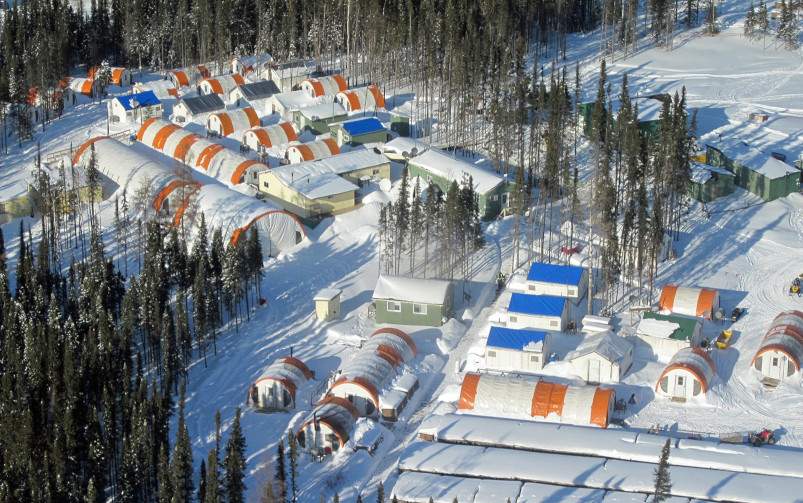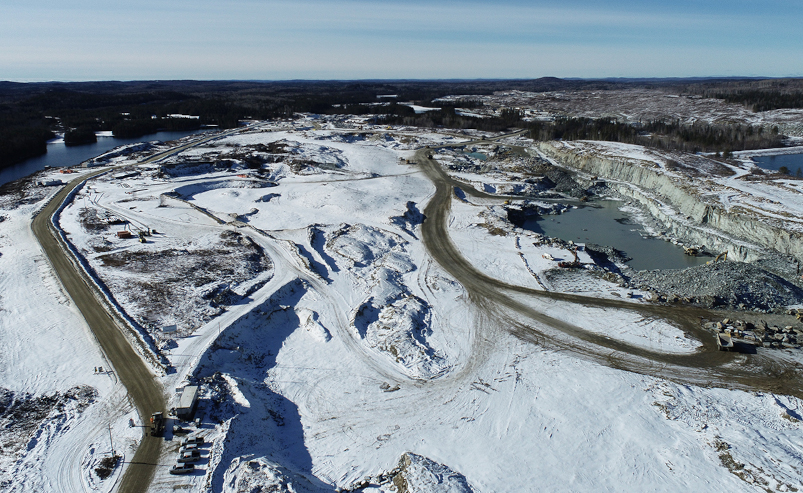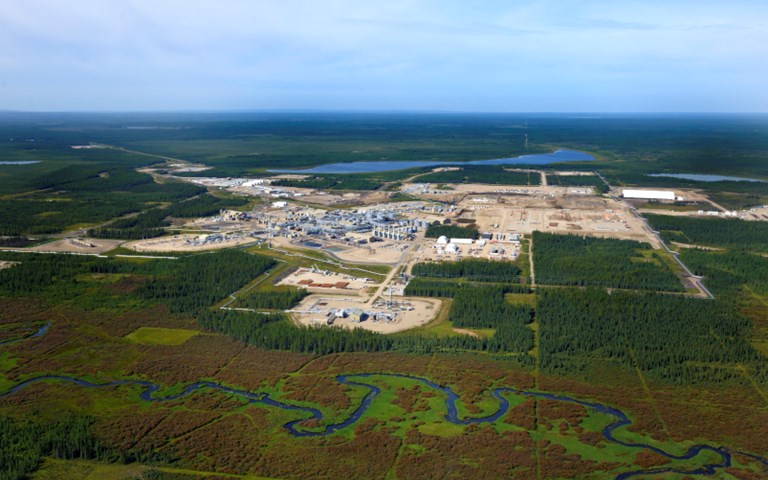Five Canadian oil sands producers are joining forces to reach net-zero carbon emissions by 2050. Courtesy of Cenovus.
Welcome back to your weekly mining news recap, where we catch you up on some of the news you may have missed. This week we have stories about the advantages of co-op placements for mining students, the near future of battery electric mining vehicles and an oil sands alliance for net-zero emissions.
New changes to British Columbia’s Professional Governance Act will require professional engineering and geoscience firms to apply for a “Permit to Practice” in order to work in the province. According to Engineers and Geoscientists British Columbia, the changes were made to bring B.C. in line with the requirements present in other provinces and align the reporting requirements for different natural resource industries.
The processes used to make lab-created diamonds have advanced to the point where they are virtually indistinguishable from natural mined diamonds. With major diamond mines closing down and a lack of significant discoveries, there are questions as to whether natural mined diamonds will be overtaken by their synthetic counterparts.
Entering co-op programs while studying can be crucial to getting jobs in the mining sector. According to employers and educators, individuals looking to enter the industry can maximize their chances by taking part in placement programs and internships in order to set themselves apart from their peers.
The Keystone XL pipeline project has been officially terminated as of this week, CBC reports. The pipeline would have carried 830,000 barrels of crude oil from Alberta to Nebraska each day, but the Biden administration’s decision to cancel the permit has resulted in a lost investment of $1.3 billion on the part of the Alberta government. Premier Jason Kenney said in a statement that “we remain disappointed and frustrated with the circumstances surrounding the Keystone XL project, including the cancellation of the presidential permit for the pipeline’s border crossing.”
The Canadian federal government has released a policy statement on future thermal coal mining projects and project expansions, indicating Canada’s desire to move away from thermal coal as a form of energy production. The new policy indicates that the government sees these projects as “likely to cause unacceptable environmental effects within federal jurisdiction and are not aligned with Canada's domestic and international climate change commitments,” which they say will inform federal decision making about such projects.
The B.C. government has signed a framework reconciliation agreement with the Tahltan First Nation, Business in Vancouver reports. The agreement will recognize Tahltan title and rights and aim to identify and negotiate land areas for transfer to Tahltan. The Shared Prosperity Agreement has been signed by the province, the Tahltan Central Government and the Iskut and Tahltan band councils, and will likely mean new restrictions on jade and placer mining in Tahltan territory, as well as $20 million in funding from the province for implementation of the agreement and economic development.
Glencore Canada is spending US$44 million on drilling and conducting a feasibility study at Kidd mine, in order to prepare for a deep mine expansion, Northern Ontario Business reports. Glencore said it has already done 89,000 metres of drilling into the ore body, and is planning a new round of 87,000 metres, once safety protocols are put in place, in order to expand what is already the deepest base metal mine in the world at 3,014 metres.
Canadian oil sands producers announced that they will be forming an alliance to achieve net-zero greenhouse gas emissions by 2050, CBC reports. The companies taking part – Canadian Natural Resources, Cenovus Energy, Imperial Oil, MEG Energy and Suncor Energy – said they will be working with the federal and Alberta governments to help Canada meet its net-zero climate targets.
Sandvik says it expects the market for battery-powered mining equipment to increase significantly over the next two to three years and that it will likely sell more electric than diesel-driven vehicles within 10 years, Reuters reports. Henrik Ager, head of Sandvik Mining and Rock Solutions, said, “In the past two years, we have gone from thinking that electrification might turn into a great technology shift to becoming certain that’s where we’re heading.”
A new report from PwC says that mining companies should target smaller deposits of raw materials necessary for battery production, rather than the longer-term deposits big companies tend to focus on, Reuters reports. Battery metals represented less than three per cent of the top 40 miner’s total revenue in 2020, according to the report, and current soaring metals prices could provide opportunities for these miners to increase their share, either through development or acquisitions.
Talks are continuing over the strike at Vale’s Sudbury operations that started on June 1, CBC reports. The dispute began following the union’s rejection of the company’s two-tiered health plan that would have seen all new workers lose health benefits when they retire. In Quebec, ArcelorMittal has reached an agreement with the executives of the five local unions of the United Steelworkers. The collective labour agreement will be renewed for a period of four years.
That’s all for this week! If you’ve got feedback, you can always reach us at editor@cim.org. If you’ve got something to add, why not join the conversation at our Facebook, Twitter or LinkedIn pages? Like your recap with a few more gifs? Check out our mining news recap stories on our Instagram.
Remember to stay safe, keep your distance and wash your hands!




